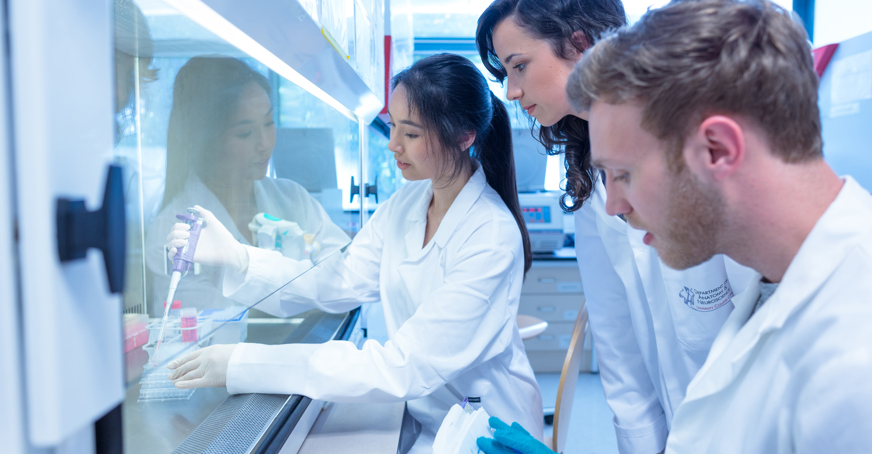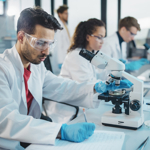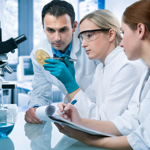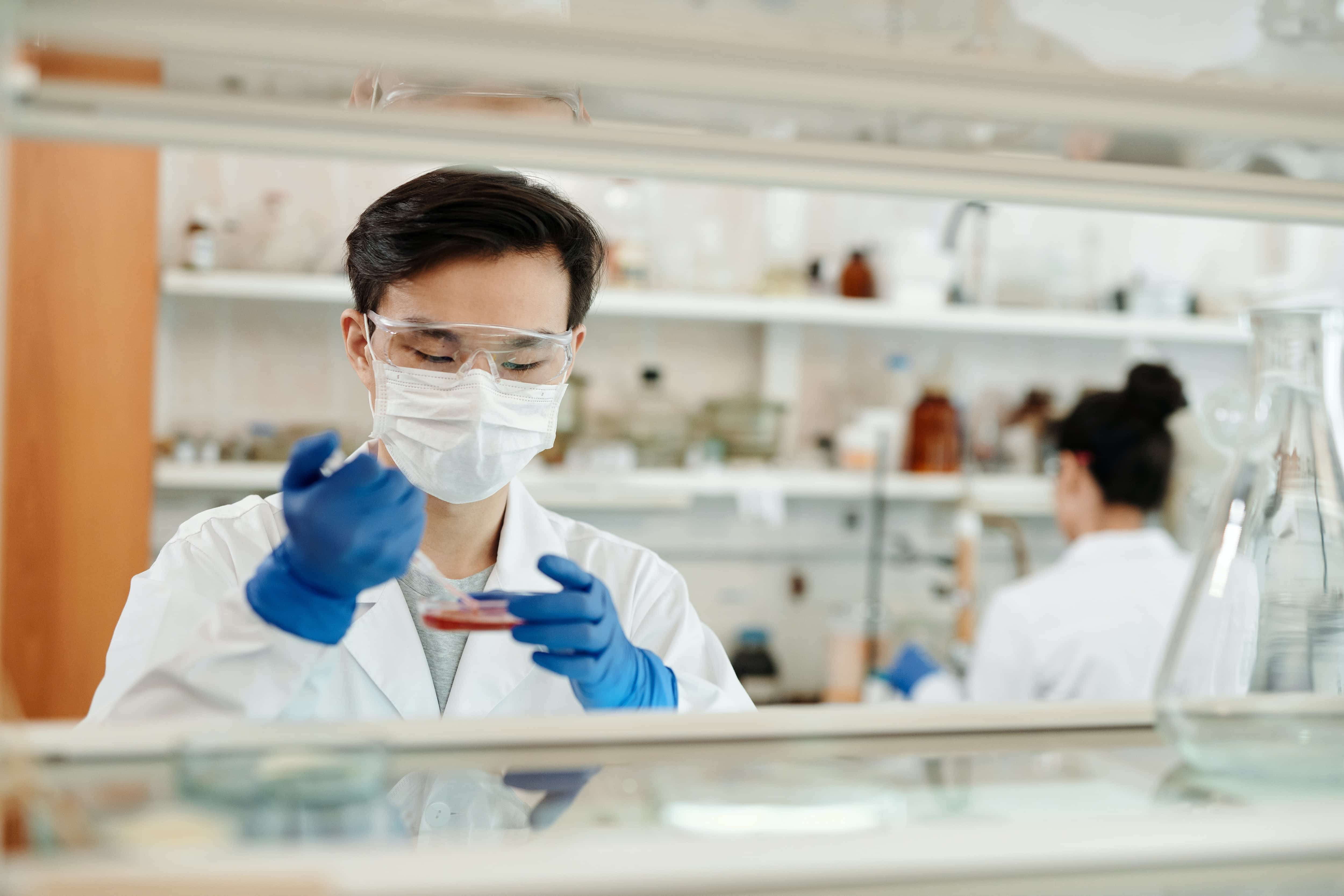
Travel Award for International Skills and Knowledge Exchange
These grants are available to support research capacity building in lower-income economy parts of the world (as classified by the World Bank).
The grants will support either a visitor from a lower-income economy country to a host laboratory in a higher-income economy country in order to learn methods. Alternatively, the grants will support a person based in a higher-income economy visiting a lower-income economy country to assist with the set-up of research.
What will the grant cover?
- Up to £2,000 is available per grant. However applications are invited for smaller amounts of funding.
- The Travel Award for International Skills and Knowledge Exchange should last between two and four weeks.
- This grant is intended to cover reasonable travel, accommodation, and subsistence costs during your visit.
To be eligible to apply:
- Applicants must be a current Postgraduate, Early Career, Full, or Emeritus member.
- Either the applicant or the person hosting the Travel Award for International Skills and Knowledge Exchange must have been a member of the Biochemical Society for over 12 months on the closing date of the round that they apply to.
- The member applying for the grant must not have received a Travel Award for International Skills and Knowledge Exchange, General Travel Grant or Lab Visit Grant from the Biochemical Society within the previous two years on the closing date of the round that they apply to.
- There must be an element of teaching during the Travel Award for International Skills and Knowledge Exchange, for example, giving research seminars. Successful applicants will show detailed plans for the dissemination of the knowledge transferred, detailing how the knowledge will be transferred beyond the fellow or host lab to improve research in the lower-income economy country.
- The grant is not intended to support collaborative visits.
Applications are assessed according to three main criteria:
1. Benefit that the exchange will have on the applicant’s career or research
- What specific training will be undertaken or carried out during your visit?
- What skills or knowledge will you develop or teach?
- What impact will this visit have on your current research and/or career?
- Have you encountered any barriers that this training will overcome?
- What problem or issue will this teaching aim to solve?
2. Financial need for support
- A clear and detailed breakdown of costs should be included.
- Do you have any provisions for travel in your research grant or PhD programme?
- Why are you requesting funds from the Society and why this particular level of support?
- Applicants are encouraged to apply for other funding to help attend the lab visit and provide details of this.
3. Teaching and dissemination of knowledge
- Detailed plans for the dissemination of the knowledge transferred.
- How will the knowledge or skills be transferred beyond the fellow or host lab to improve research in the lower-income economy country?
- Examples of knowledge transfer e.g., research seminar, workshops, creation of resources or training.
- Indication of the scope e.g., How many people will benefit? What research or experiments can be carried out as a result? What skills will be developed?
Applications are considered three times a year, the deadlines for which are:
- 1 February for visits after 1 March
- 1 July for visits after 1 August
- 1 November for visits after 1 December
Due to the weekend, applications will be accepted to the following Monday (3rd) for the February and November round.
Please note we aim to send round the outcome of applications three to four weeks after the deadline of the round that has been applied to.
Please keep the following in mind when applying for a Travel Award for International Skills and Knowledge Exchange:
- Projects undertaken during the lab visit should have a molecular bioscience focus.
- There must be an element of teaching involved in the visit. Collaborative visits are considered under our Lab Visit Grants.
- The visit should last between two and four weeks.
- We accept applications from anywhere in the world, however please note that we are unable to pay grants to recipients in jurisdictions, countries or regions subject to sanctions, embargoes or other political trade restrictions put in place by the United Nations, the EU or the UK.
- The Biochemical Society does not fund any applications made retrospectively.
- Incomplete or late applications will not be accepted.
- Travel insurance fees, visa fees and consumables are not covered by this grant. Please only submit breakdown of costs for travel to/from the host institution, reasonable subsistence costs and accommodation for the nights of the lab visit.
- Travel Award funding can only be used to support the trip specified in the successful application. If any details change after submission, please contact us.
- We encourage applicants to apply for funding from other funding bodies (including your own institution) to accompany your application. This should include the amount requested, the name of the organisation/grant scheme applied for, and the outcome (or date outcomes are expected). You agree that if the funding received exceeds the total needed for this meeting, you will return any unspent funds to the Biochemical Society.
- A Travel Award for International Skills and Knowledge Exchange is non-transferable and can only be used to support the visit of the named applicant. Applications can not be made on behalf of other individuals, or to support a group visit.
If successful:
- The Biochemical Society cannot be held responsible for any of the Recipient’s debts or liabilities.
- The Recipient is required to submit photographs and a 300 word report about their experience during the lab visit. This report should provide an overview of the project undertaken, outlining particular skills or training developed and the key outcomes of the lab visit. The report and photographs may be published on the Biochemical Society website, social media channels or considered for publication in our community magazine, The Biochemist. Please ensure consent is given by any individuals featured in the photographs.
- The Recipient is required to submit a letter from the host laboratory confirming the visit took place.
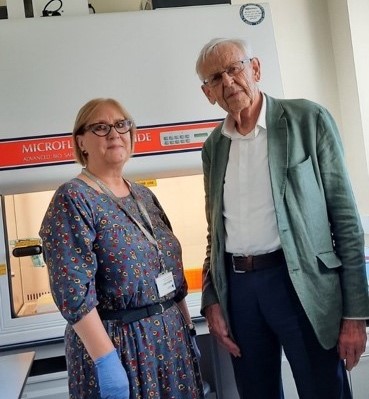
Hear from a member
We supported Colyn Crane-Robinson and Nelly Sapojnikova's collaborative visit for their project 'Gaining experience in genomics to study heavy metal tolerance in bacteria'
Read their reportHear from a Grants Committee member
Members of our Grants Committee took part in a Biochemistry Focus webinar titled 'How to apply for Biochemical Society grants'.
Hear from Professor Joanna Kargul, who discusses what to include in a Travel Award for International Skills and Knowledge Exchange application.
Contact us
For further information please get in touch with the Grants department.
Related grants
Please find other related funding opportunities below.

